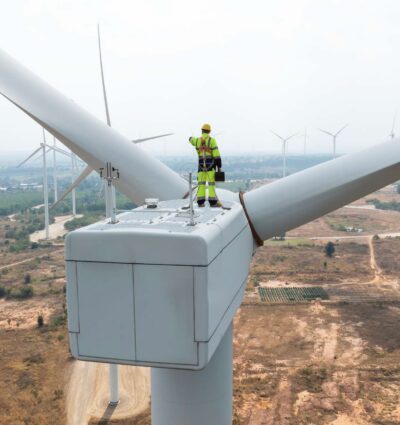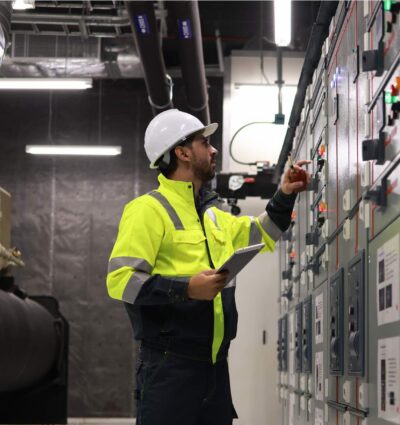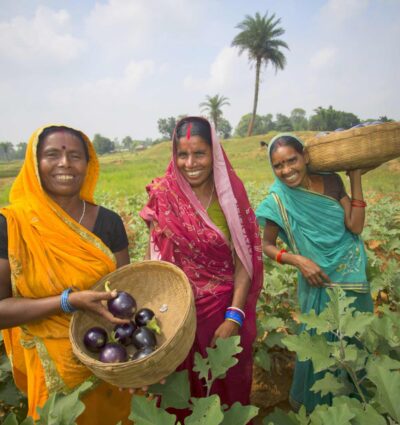
Sustainability is a commitment measured through tangible and verifiable actions. In its 2025 Sustainability Report, Drivania reaffirms this vision by announcing the offset of all CO2 emissions generated in 2024 through investment in a wind energy project located in Gujarat, India.
This Gold Standard-certified initiative strengthens both global greenhouse gas reduction and the economic and social development of the region, reinforcing Drivania’s commitment to a sustainable transportation and mobility model.
Committed to CO2 emissions offset since 2001
Drivania has offset its entire carbon footprint over more than two decades, a pioneering commitment within the private mobility sector. All emissions generated by Drivania since 2001 have been compensated, with each offset audited and certified by independent organizations, ensuring transparency and traceability.
This historic commitment has allowed the company to evolve beyond the mobility industry, becoming a proactive agent of change within the voluntary carbon market.
Alfanar Wind Power Project in Gujarat: A real commitment to clean energy
The selected project to offset the emissions generated throughout 2024 is the Alfanar wind energy project in Gujarat, one of the most significant renewable initiatives in this region of India. Located in the village of Laximpar, in the Kutch district, the area is strategically important due to its consistent wind potential and integration capacity with India’s national power grid.
With an installed capacity of 301.4 MW, the wind farm consists of 136 turbines arranged in two configurations: 22 turbines of 2.3 MW and 114 turbines of 2.2 MW. All energy produced is fed into the national grid, directly contributing to the reduction of fossil fuel dependence and strengthening the country’s energy safety.
The scale of the project positions it as a key player in India’s CO2 emission reduction and decarbonization goals, aligned with the country’s transition to a more sustainable, lower-carbon economy. Furthermore, its location in an industrially active region like Gujarat amplifies the positive impact, enhancing access to renewable energy for both businesses and local communities.

Gold Standard Certification as a guarantee of transparency and social benefits
The Gold Standard (GS), established in 2003 by WWF along with other international environmental organizations, is one of the most rigorous certifications. It ensures that projects not only contribute to CO2 emission reductions but also create added social and economic value.
Each project under this standard must pass independent audits and provide verifiable evidence of its impact in two key areas:
- Environmental: measurable and real reductions in greenhouse gas emissions.
- Social: job creation during construction and operation, strengthening local economies, and contributing to the Sustainable Development Goals (SDGs).
This high level of rigor protects against greenwashing and distinguishes initiatives like the Gujarat wind project, ensuring that climate investments deliver verifiable, lasting, and socially equitable impact. Additionally, the Gold Standard maintains a public database where anyone can verify project details, reduced emissions, and co-benefits.
Environmental and social impact in the Gujarat region
The state of Gujarat faces significant environmental challenges. A study by the Gujarat Pollution Control Board identified 51 untreated wastewater discharge points into the Vishwamitra River. Similarly, the Bhadar River, near Ahmedabad, continues to receive pollutant discharges despite new treatment plants.
Air quality challenges in Gujarat compound these water pollution issues. Recent studies in Ahmedabad and other industrial cities have shown a correlation between increased fine particulate matter in the air and higher hospital admissions for respiratory illnesses, particularly asthma.
In this context, clean energy projects like Alfanar’s not only reduce emissions but also provide a sustainable alternative to highly polluting industries.

Gujarat Sustainability Summit 2025, a regional push towards a low-carbon economy
In March 2025, Gujarat became the epicenter of climate action by hosting the Sustainability Summit, a forum attended by over 30 business, academic, and institutional leaders. The sessions addressed key topics such as climate resilience, the integration of ESG (Environmental, Social, and Governance) criteria into corporate strategies, India’s roadmap to achieving net-zero by 2070, and regional reforestation programs.
The summit reflected Gujarat’s collective commitment to positioning itself as a sustainability leader, demonstrating that economic growth can be advanced while protecting ecosystems and fostering green innovation.
Economic and social benefits of the wind project for the local community
Alongside this global vision, the Alfanar wind project serves as a clear example of how a renewable energy initiative in India can deliver immediate and lasting benefits to local communities. Beyond its environmental impact, the project promotes local development by creating employment during construction and operation, contributing to economic and social well-being:
- Direct and indirect job creation during construction, operation, and maintenance, stimulating the economy of rural communities.
- Support for the local productive sector, engaging regional suppliers, services, and labor.
- Protection of natural resources by reducing reliance on fossil fuels and preventing the associated pollutant emissions.
- Strengthening long-term energy resilience, diversifying the power mix, and ensuring a more stable and sustainable supply for households and industries.
In this way, the project not only addresses the climate crisis but also enhances quality of life in Gujarat, reinforcing the link between energy transition and social well-being.
Sustainability as a collective effort: Drivania’s role
At Drivania, we understand that sustainability is a collective and ongoing effort. The company has taken on the responsibility of offsetting 100% of the carbon footprint generated by its private transportation services, with verifiable sustainability reports ensuring that every action can be measured and audited.

Initiatives like the Alfanar wind project in Gujarat reflect a broader goal, connecting and empowering communities not only through mobility services but also by actively contributing to a more sustainable and equitable global future.
Drivania’s mission focuses on connecting people and communities while supporting projects that deliver tangible environmental, social, and economic benefits worldwide. In this way, every journey becomes an example of how collaboration in sustainable projects can transform the mobility industry into a real tool for climate and social impact. And while challenges remain, every decision, journey, and commitment adds up to building a cleaner, fairer, and more responsible economy.
Frequently Asked Questions about Drivania’s 2025 Sustainability Report
What is carbon offsetting?
Carbon footprint offset involves balancing unavoidable CO2 emissions by investing in projects that reduce or capture greenhouse gases. In this way, every Drivania service neutralizes its climate impact by supporting renewable and sustainable initiatives across different regions of the world.
Why do we choose Gold Standard-certified projects?
Gold Standard-certified projects ensure that emission reductions are real, measurable, and verifiable. They also provide additional benefits to local communities. This international certification, backed by WWF, adds transparency and credibility.
How does this affect Drivania’s services?
Passengers enjoy the same mobility service with the reassurance that every trip is carbon neutral. All emissions generated are offset through certified projects, making each journey a responsible experience aligned with global climate goals.
What benefits does this have for local communities?
Beyond reducing emissions, projects like the Gujarat wind farm create jobs, stimulate economic development, and enhance energy resilience. These initiatives promote social well-being, improve access to clean energy, and protect natural resources, contributing to the sustainable progress of communities hosting renewable infrastructure.
How can I access the full report?
Drivania’s 2025 Sustainability Report is available via the following link. For additional information, detailed data, certifications, or verified results, you can contact Drivania here.